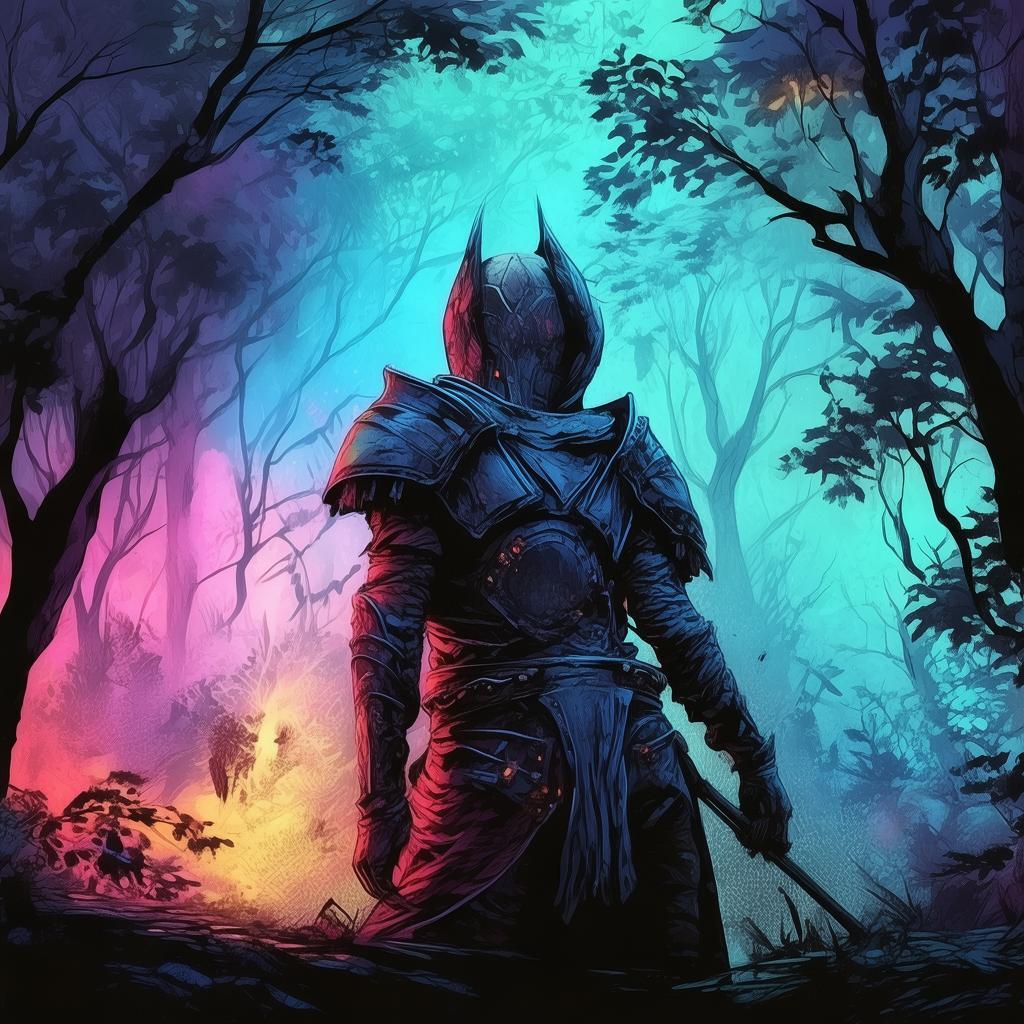The Gandhi Glitch: A Timeless Paradox
The sun dipped below the horizon, casting a golden hue over the bustling streets of 1930s India. In a dimly lit room, a young historian named Alex sat hunched over a table, his fingers dancing across a keyboard. The air was thick with anticipation, the weight of a monumental task resting on his shoulders. Today, he was to embark on a journey that would change the course of history.
Alex had been chosen for a mission few could comprehend, let alone undertake. The Gandhi Glitch, as it was called, was a time travel paradox that threatened to unravel the fabric of time itself. A mysterious force had allowed time travelers to visit the past, but only under strict guidelines. The mission was clear: prevent a catastrophic event that could alter the course of history.
As Alex activated the time machine, a blinding light enveloped him. When it faded, he found himself standing in the heart of 1930s India, the year of Gandhi's historic Salt March. The air was filled with the scent of spices and the sound of distant chants. He was in the right place, but something felt off.
Alex's mission was to prevent the assassination of Gandhi, an event that would have catastrophic consequences for India and the world. But as he wandered through the streets, he couldn't shake the feeling that he had seen this before. He had been here before, in this exact moment, with the same mission.
Suddenly, a figure approached him, his eyes alight with a mixture of fear and determination. It was a young man named Ravi, who claimed to have seen Alex before. "You must help me," Ravi whispered urgently. "The British are planning something terrible."
Alex's mind raced. Ravi's words contradicted his mission. He was supposed to prevent the assassination, not stop a different atrocity. But as he looked into Ravi's eyes, he saw a man who was as much a part of history as he was. He had to choose.
The next day, Alex followed Ravi to a hidden meeting place. There, he met a group of revolutionaries, their faces etched with the struggle for independence. They were planning to attack a British military base, a move that could have severe repercussions for the movement.
As the group discussed their plan, Alex realized that he had to act. He couldn't let history be altered by a single event. He had to prevent the attack, but how? The revolutionaries were passionate and determined, and their cause was just.
In a moment of clarity, Alex decided to use his knowledge of the future to guide the revolutionaries. He shared his insights on the British military's weaknesses and suggested a strategy that could minimize the loss of life. The revolutionaries were skeptical at first, but Alex's confidence in his plan won them over.
The night of the attack, Alex stood with the revolutionaries, his heart pounding with a mix of fear and hope. As they approached the base, the sound of distant gunfire echoed through the night. The revolutionaries moved with precision, their mission unfolding as Alex had predicted.

But as they made their way back to the city, they were ambushed by British soldiers. In the chaos, Alex was separated from the group. He found himself cornered, with no escape. The British officer, a man with a cold, calculating gaze, pointed his gun at Alex's head.
"Your time is up," the officer said, his voice laced with malice.
In that moment, Alex's mind raced back to the future. He remembered the consequences of altering history, the chaos that would ensue. He had to make a choice. He had to prevent the assassination of Gandhi, no matter the cost.
As the officer pulled the trigger, Alex's eyes closed, his mind racing through the possibilities. But as the bullet struck his chest, he felt a strange sensation, as if time itself was bending around him. When he opened his eyes, he was back in the room with the time machine.
Alex's heart raced as he activated the machine once more. This time, he was transported to the moment of Gandhi's assassination. As he watched the event unfold, he realized that he had failed. The paradox was too great, the consequences too severe.
Disheartened, Alex sat in the room, his mission unfulfilled. But as he looked around, he noticed something. The room was different. There was a book on the table, a book that had never been there before. It was a biography of Mahatma Gandhi, written by a historian named Alex.
In that moment, Alex understood. He had become the historian who had written the biography, the one who had documented the events of Gandhi's life. He had become part of history, his actions and decisions woven into the very fabric of time.
As he closed the book, Alex realized that his mission had not been about preventing a single event, but about understanding the complexity of history and the impact of his own actions. He had become a part of the story, a story that would continue to unfold, no matter what choices he had made.
The Gandhi Glitch had taught Alex a profound lesson: that the past was not a fixed point, but a tapestry of possibilities. And as he sat in the room, surrounded by the echoes of history, he knew that he had become a part of that tapestry, a thread in the endless story of time.
✨ Original Statement ✨
All articles published on this website (including but not limited to text, images, videos, and other content) are original or authorized for reposting and are protected by relevant laws. Without the explicit written permission of this website, no individual or organization may copy, modify, repost, or use the content for commercial purposes.
If you need to quote or cooperate, please contact this site for authorization. We reserve the right to pursue legal responsibility for any unauthorized use.
Hereby declared.









